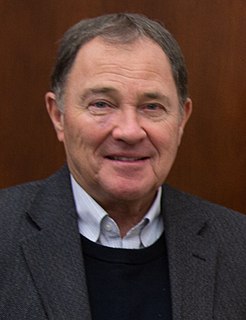A Quote by Dean Kamen
You can't look at the problem and say, 'I want them to do more, better, faster miracles - and not invest in research, not invest in development, and have those miracles delivered to me free.' It's unrealistic.
Related Quotes
A private man has always the liberty (because thought is free) to believe or not believe in his heart those acts that have been given out for miracles, according as he shall see what benefits can accrue by men's belief, to those that pretend, or countenance them, and thereby conjecture whether they be miracles or lies.
Small business is the gateway to opportunity for those who want a piece of the American dream... Well, wouldn't it be nice to hear a little more about the forgotten heroes of America - those who create most of our new jobs, like the owners of stores down the street; the faithfuls who support our churches, synagogues, schools, and communities; the brave men and women everywhere who produce our goods, feed a hungry world, and keep our families warm while they invest in the future to build a better America? That's where miracles are made, not in Washington, D.C.
The biggest challenge is that when people look at low price point products, they essentially invest less money in development, innovation, and new technology. And in order to innovate at a lower price point, and make sustainability attainable to the masses, you have to invest more. But that's counterintuitive for a lot of businesses.
Miracles are like candles lit up until the sun rises, and then blown out. Therefore, I am amused when I hear sects and churches talk about having evidence of Divine authority because they have miracles. Miracles in our time are like candles in the street at midday. We do not want miracles. They are to teach men how to find out truths themselves; and after they have learned this, they no more need them than a well man needs a staff, or a grown-up child needs a walking-stool.
I do believe I begin to grasp the nature of miracles! For would it be a miracle, if there was any reason for it? Miracles have nothing to do with reason. Miracles contradict reason, they strike clean across mere human deserts, and deliver and save where they will. If they made sense, they would not be miracles.
Politics and government have been a terrible place to invest; education has been a terrible place to invest, but that is because the entrenched interests make it a terrible place to invest. The way you invest in those sectors is you go against the entrenched interests; you try and disrupt the entrenched interests, not to service them.
I'm afraid what we are building today will not have the same impact and sustainability of the architecture of a 100, 500 or 1,000 years ago. The buildings of those days were miracles. We don't perform such miracles today. So we should be a little more modest. For my part, I'll be glad to show one of my buildings one day to my grandchildren and say: I'm proud of that.





































